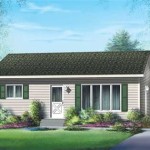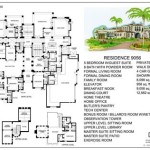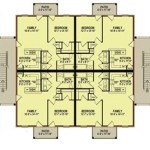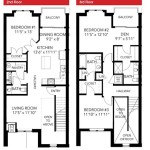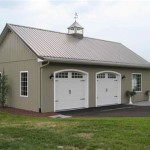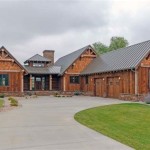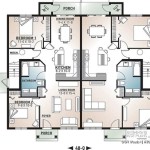Open Concept Small House Plans: Maximizing Space and Flow
Open concept house plans have become increasingly popular in recent years, offering a spacious and airy feel that seamlessly connects different living areas. For small homes, this design approach can be particularly transformative, creating the illusion of more space and promoting a comfortable, cohesive living environment.
Open concept plans typically feature a large, open space that encompasses the living room, dining room, and kitchen. This central area flows freely between the different functions, eliminating unnecessary walls and bulky furniture. The result is a versatile and adaptable space that can accommodate various activities and cater to different needs.
Incorporating an open concept design into a small house plan requires careful planning and attention to detail. Here are some key considerations and advantages to keep in mind:
Efficient Use of Space
By eliminating unnecessary walls and partitions, open concept plans maximize the available space. This is especially beneficial for small homes, as it creates a more open and spacious feel. The uninterrupted flow between living areas allows for better furniture placement and increased flexibility.
Natural Light and Ventilation
Open concept plans typically feature large windows and open sightlines, allowing for ample natural light to flood the interiors. This not only creates a bright and airy atmosphere but also reduces the need for artificial lighting, saving energy and enhancing the overall well-being of occupants.
Social Interaction and Communication
The open and interconnected nature of open concept plans fosters social interaction and communication. Family members and guests can easily connect and engage with each other, even when occupying different areas of the house. This promotes a sense of community and togetherness.
Versatile and Adaptable
Open concept plans offer a high level of versatility and adaptability. The absence of defined boundaries allows homeowners to customize the space according to their evolving needs and preferences. The furniture and decor can be rearranged easily to accommodate different activities and occasions.
When designing open concept small house plans, there are a few potential challenges to consider. These include:
Noise Control
With the open nature of the space, sound can travel more easily. To mitigate noise pollution, consider incorporating sound-absorbing materials into the interior design, such as rugs, curtains, or acoustic panels.
Privacy
Open concept plans may offer less privacy for specific areas, such as bedrooms or home offices. Strategic placement of furniture or the use of dividers can help create designated spaces for privacy when desired.
Visual Clutter
To maintain a cohesive and clutter-free appearance, it's important to carefully consider the placement of furniture and decor in open concept plans. Clean lines, simple silhouettes, and a minimalist approach can help prevent the space from feeling visually overwhelming.
Conclusion
Open concept small house plans offer numerous advantages, including efficient space utilization, enhanced natural light and ventilation, social interaction, and versatility. With careful planning and attention to potential challenges, homeowners can create a comfortable, stylish, and inviting living space that maximizes every inch of available space.

10 Small House Plans With Open Floor Blog Homeplans Com

Open Concept Two Bedroom Small House Plan Other Examples At This Link Plans Tiny Floor Sims

10 Small House Plans With Open Floor Blog Homeplans Com

Modern Small House Plans And Design Ideas Floor Plan Open Concept Kitchen Living Room Guest One Bedroom

10 Small House Plans With Open Floor Blog Homeplans Com

10 Small House Plans With Open Floor Blog Homeplans Com

Small Cottage House Plans With Modern Open Layouts Houseplans Blog Com

16 Best Open Floor House Plans With Photos The Designers

Open Floor Plans And House Value Trend Ysis

Small Cottage House Plans With Modern Open Layouts Houseplans Blog Com

